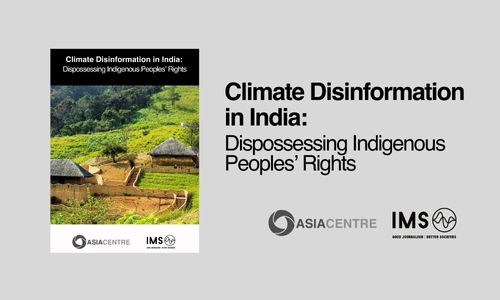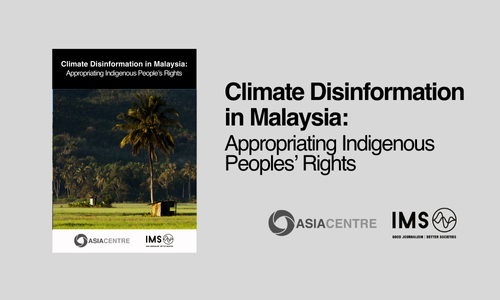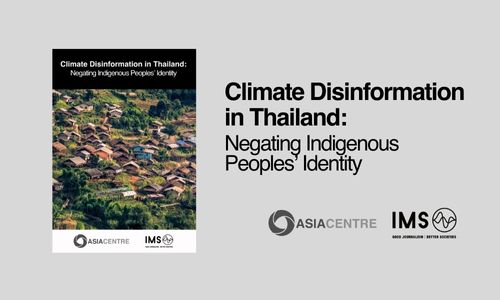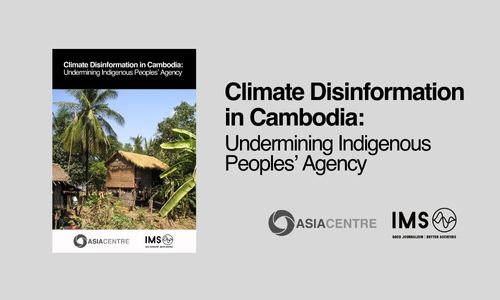BASELINE STUDIES

Climate Disinformation in India: Dispossessing Indigenous Peoples’ Rights
Coming Soon In India, both online and offline climate disinformation stands to dispossess the protected rights of Indigenous Peoples (IPs) who constitute 8.6% (104 million) of the population. False narratives in the media and social media legitimise the subversion of laws like the Forest Rights Act (FRA) intended to protect

Climate Disinformation in Malaysia: Appropriating Indigenous Peoples’ Rights
Coming Soon In Malaysia, Indigenous Peoples (IPs) – who make up 11% of the population and largely reside in climate-vulnerable forested areas – are disproportionately affected by “climate disinformation”. Amplified by the rapid expansion of digital media since the early 2000s, such disinformation manifests in greenwashing narratives, the promotion of

Climate Disinformation in Thailand: Negating Indigenous Peoples’ Identity
Download Full Report In Thailand, the rapid digitalisation of media and widespread use of social media since the early 2000s have accelerated the spread of climate disinformation. This has reinforced the systemic negation of Indigenous Peoples’ (IPs) identity. Climate disinformation disproportionately affects IPs, who make up nearly 14% of the

Climate Disinformation in Cambodia: Undermining Indigenous Peoples’ Agency
Download Full Report In Cambodia, the rise of digital media and social media platforms since the mid-2010s has intensified a surge in climate disinformation. It affects Indigenous Peoples (IPs), who make up about 3% of the population and live in forests highly vulnerable to climate change and deforestation. From false

Technology-Facilitated Gender-Based Violence in Cambodia: Impact on the Civic Freedoms of Women Journalists and Human Rights Defenders
Download Full Report The increasing use of digital platforms for advocacy by women in Cambodia has been accompanied by a rise in technology-facilitated gender-based violence (TFGBV), a form of harassment perpetrated online. While all women and girls are at risk, those highly visible in the public sphere – such as

Digital Security for High-risk Users in the Asia-Pacific: Needs Assessment Report
Download Full Report Since the mid-2000s, the internet has shaped politics in the Asia-Pacific region. As internet and social media penetration increases, the risks for those using new technologies to advocate for public accountability have also increased. In 2022, the region accounted for 31% of global cyberattacks, with governments and
